BAD BARS: Changes coming for ATC, but is it enough to stem violations and violence?
- Oops!Something went wrong.Please try again later.
Changes are coming to Indiana’s alcohol enforcement system after revelations that the state has allowed violence and other problems to go largely unchecked at Indianapolis bars and clubs.
The changes include a proposed 35% funding boost for the chronically understaffed Indiana Alcohol & Tobacco Commission, new policies intended to crack down on problem bars and the creation of task force to target nightclubs where violence is a concern.
The reforms follow an IndyStar investigation that exposed how weak enforcement by the ATC has contributed to a Wild West atmosphere at some Indianapolis bars. Already the reforms are having an impact, contributing to a spate of bar closures across the city.
49 killed, 154 shot or stabbed: How Indiana law protects bad bars
State officials, however, have refused to address the most glaring problem with Indiana’s system: an unusual law that prohibits cities from regulating alcohol establishments. Indianapolis police and city officials say the law leaves them powerless to shut down bars despite repeated shootings, criminal charges against the owners and other problems.
The limits of the reforms enacted so far were on display late last month when the state alcohol commissioners approved a license extension for a troubled westside bar, despite multiple shootings in its parking lot and the recent conviction of one of its operators for failing to pay $54,000 in taxes. The decision outraged neighborhood leaders and police.
Such examples are making it hard for legislative leaders, who have resisted broader reforms, to deny the need for additional action. But with just a couple weeks left in this year's legislative session, bigger changes seem increasingly unlikely.
Here is what you need to know about what has — and hasn't — changed since IndyStar began investigating violence at bars and clubs.
More money for the ATC
Shortly after IndyStar confronted state officials with its findings, Gov. Eric Holcomb included a significant funding increase for the Indiana Alcohol & Tobacco Commission in the proposed two-year state budget making its way through the legislature.
Under the proposal, the agency’s annual budget would rise from $13.7 million to $18.1 million next year and $18.4 million the following year. That represents the agency’s largest funding increase in at least 15 years.
The governor has not spoken publicly about the proposed spending increase. He and ATC Chairwoman Jessica Allen declined interview requests from IndyStar.
Erin Murphy, a spokeswoman for Holcomb, said the budget increase had nothing to do with IndyStar's investigation and had been in the works for months.
She said the money will be used to increase starting pay for excise officers, provide salary increases for other ATC staff, fill 10 vacant excise police positions and purchase body cameras.
The salary and starting pay increases were part of broader Holcomb initiatives that he has discussed publicly, she said.
The budget increase would begin to address some of the shortcomings identified in IndyStar’s investigation, which found the state had just 73 excise officers to monitor 15,000 bars, restaurants and stores that sell alcohol.
The low staffing levels have contributed to a steep reduction in enforcement. Alcohol violations and underage drinking checks have fallen about 80% since 2014, IndyStar found.
The lax enforcement and the city's inability to intercede created a culture of impunity at some Indianapolis bars, according to police. In all, IndyStar identified more than 600 reported acts of violence tied to several dozen bars, clubs and event centers. That violence left at least 49 people dead and more than 150 wounded in shootings or stabbings.
Even with the proposed influx of money, the ATC will still have fewer than one excise officer for every county.
"Hiring 10 new officers is an important step forward, but will not fill the need," said Lisa Hutcheson, director of the Indiana Coalition to Reduce Underage Drinking.
Expanded task force begins to net results
Improved cooperation with IMPD is another recent change. The ATC detailed two excise police officers to a new Marion County Alcohol Task Force. Those officers now work out of the offices of IMPD’s Commercial Crimes Branch on Keystone Avenue.
The closer coordination is intended to clamp down on violence at bars and clubs. So far, it appears to be working.
The task force played an integral role in shutting down Club Onyx, a southside strip club. A months-long investigation culminated in February with the arrest of several workers on drug, prostitution and gun charges. It also resulted in seven alcohol citations.
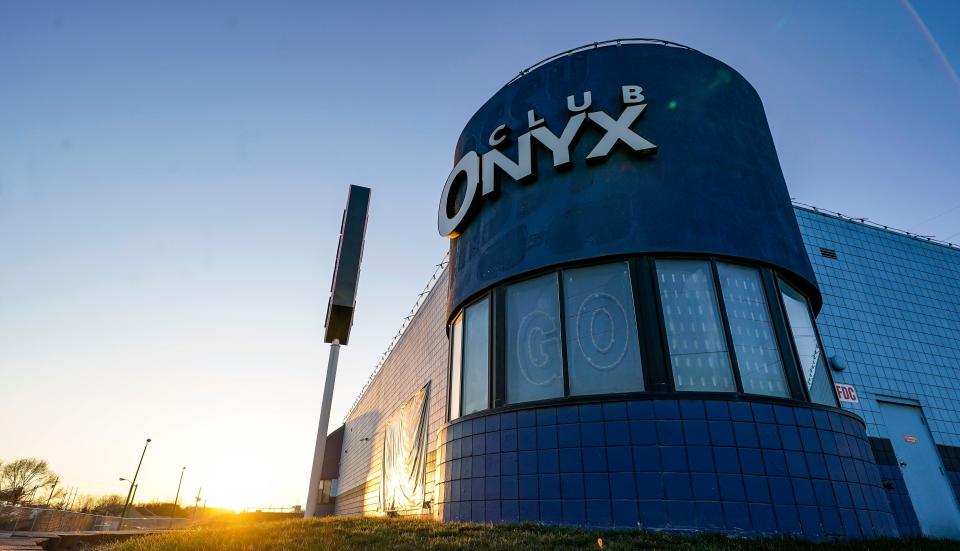
The club, which police have tied to at least six shootings since 2021, closed the day after receiving the citations.
ATC creates new policy, then backs down
One of the most promising changes at the ATC was a new policy that went into effect in March.
It was intended to prevent the abuse of temporary 90-day license extensions. Such extensions had become virtually automatic and IndyStar found that bars with violent histories frequently used them to continue operating despite well-documented problems.
The new policy requires a formal vote of the ATC’s four commissioners before a second extension request can be granted. It also specifies reasons the commission can deny extensions.
Commissioners used the new policy to deny a liquor license extension last month for El Chila Sports Bar. Three people have been shot — one of them fatally — in the bar’s parking lot since 2020 and its manager recently pleaded guilty to failing to pay taxes from the business.
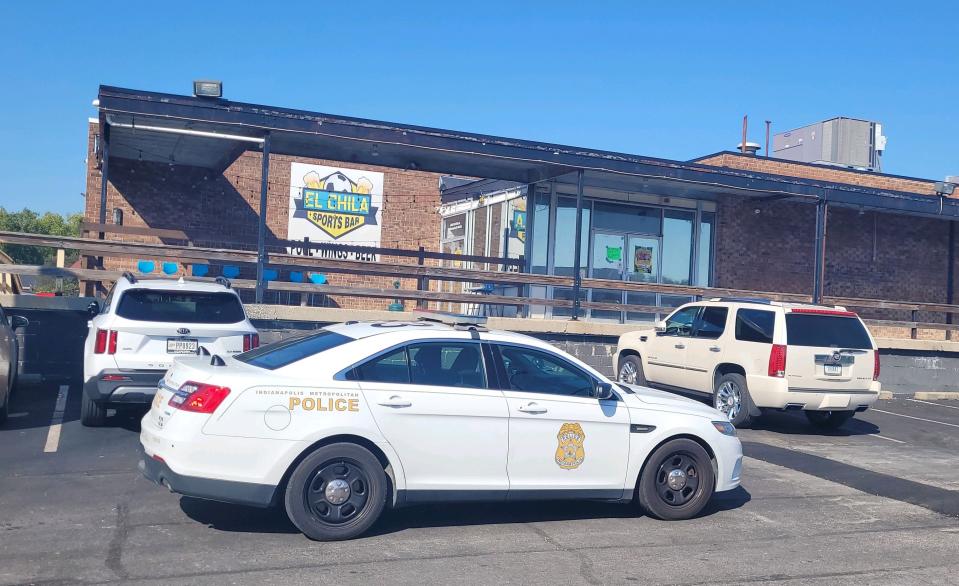
But just days after denying the extension, the ATC flip flopped and granted the extension. The surprise decision came after the bar's influential alcohol attorney, Jeff McKean, asked commissioners to reconsider. Opponents had no idea the commission planned to take up the issue again.
The decision outraged neighborhood association leaders and drew a sharp response from IMPD. They had planned to testify against the bar at a local alcohol board hearing earlier this month, but the commission's decision allowed El Chila to avoid that hearing without any input from opponents.
'If it isn't illegal, it should be:' Neighbors stunned as bar's license extended
“What will the ATC do if and when there is another act of violence at El Chila?” IMPD Capt. Christopher Boomershine asked in a letter sent to the commission two days after the sudden reversal.
In the letter, which IndyStar obtained through a public records request, IMPD disputes several of McKean's assertions, including his argument that a nearby taco truck, rather than the bar, was to blame for the violence.
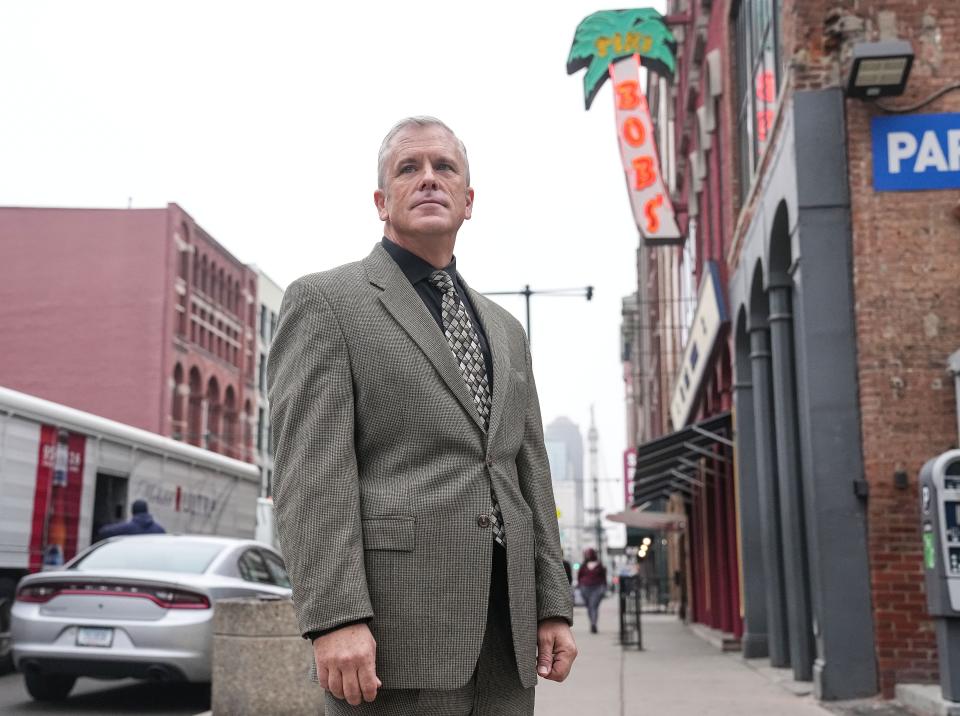
An underage man who police shot in 2020 after he pointed a handgun at a group outside the bar had been a patron, Boomershine said. So too were the victim, suspect and underage witness in a fatal October shooting in the bar's parking lot, he said.
“For Mr. McKean to attribute violence to tacos is a preposterous excuse in this case,” Boomershine wrote.
Lawmakers acknowledge problem, but are slow with solutions
More sweeping changes to Indiana's alcohol enforcement system would likely have to come from state lawmakers.
All of Indiana’s neighboring states allow local authorities to shut down problem bars. City officials in places like Columbus, Ohio, say that ability saves lives and drives down crime rates in neighborhoods where nuisance bars exist.
Character matters. It's a state law. So what about owners of strip club with violent past?
But lawmakers in Indiana have resisted granting more authority to cities.
One reason is political power dynamics. Republicans who control the levers of state government don't want to share power over an industry that holds significant sway at the Statehouse, especially when the city officials seeking more authority are Democrats.
Instead, legislative leaders have pointed the finger back at city officials.
The ATC is "not there to enforce or prevent murders or fights or violence," Senate leader Rodric Bray said in February. "You know if the city is serious about that they'll put a law enforcement officer outside of those bars and the prosecutor will take those very seriously."
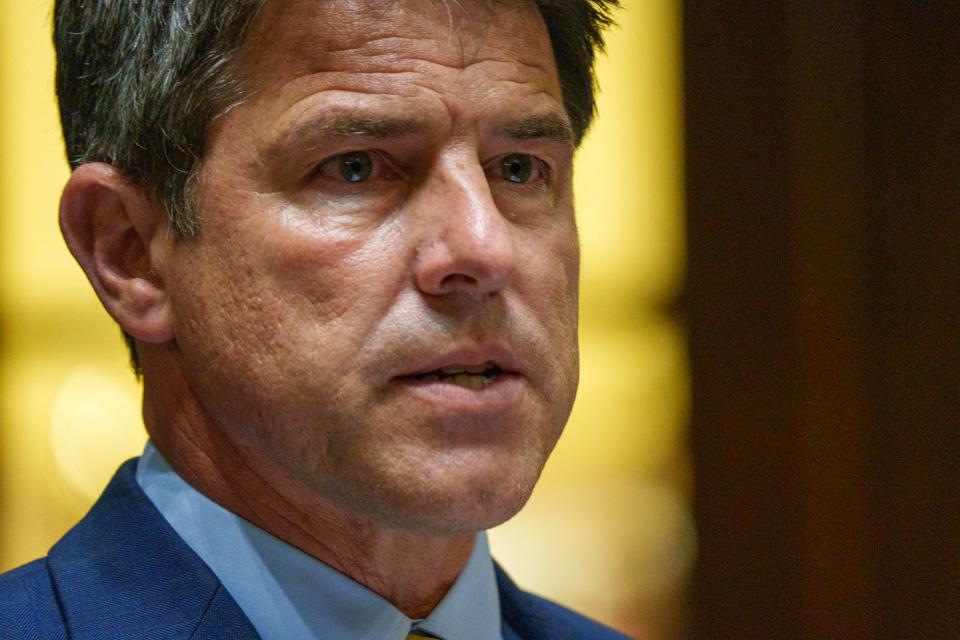
Bray's campaign received significant support from the alcohol industry, including a $1,000 contribution last year from a national strip club chain that touted Club Onyx as a licensed location.
“If it's been a problem, why hasn't the mayor approached the General Assembly?” said Sen. Ron Alting, a Lafayette Republican who leads the Senate committee that controls alcohol issues.
Alting has received nearly $7,000 in campaign contributions since 2018 from McKean, the alcohol attorney who represents El Chila.
City officials counter that they are doing everything they can within the scope of state law. IMPD has added personnel to its commercial crimes branch and has arrested several bar owners for tax evasion and corrupt business practices. The city also spent nearly $2.9 million on overtime for extra patrols in a two-block area of South Meridian Street that is home to several bars and clubs.
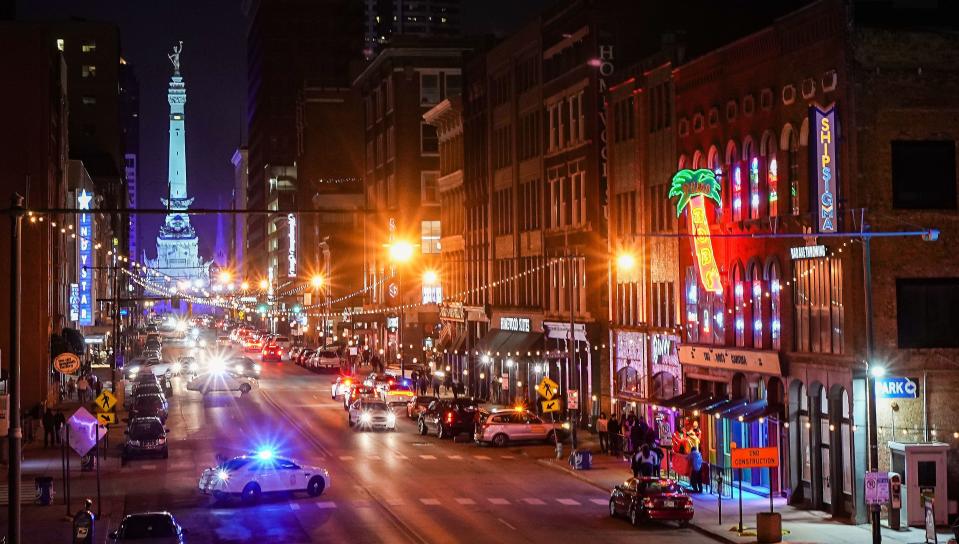
Despite the initial resistance, some legislative leaders have started to soften their opposition recently as residents and police grow more frustrated with pace of change at the ATC.
For example, Alting said last week that the El Chila case shows how a good attorney can “go around the system.” He said license extensions “should never be a rubber stamp.”
“So I do think there'll be legislation for next year that will be authored for sure that will assist the ATC to close those loopholes and make sure it's solid,” he said.
And Bray recently gave a far less strident response when asked if legislation was needed to help prevent violence at bars and clubs.
“Law enforcement is a really good way to start that process and prosecution is as well. I still agree with that,” he said. “If there are things that we can do, on the ATC side, then I’m happy to take a look at that… If we can have a hand in cleaning up some of those problems, I would be very happy to do so.”
This article originally appeared on Indianapolis Star: Bad Indianapolis bars: Can ATC changes improve safety, violations?

